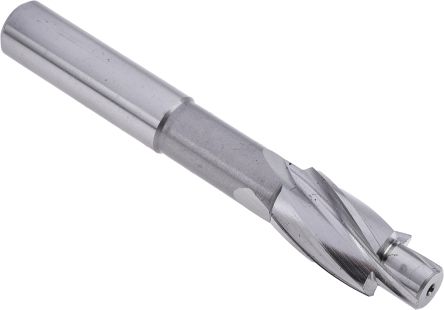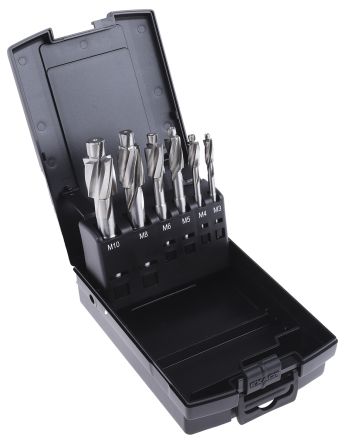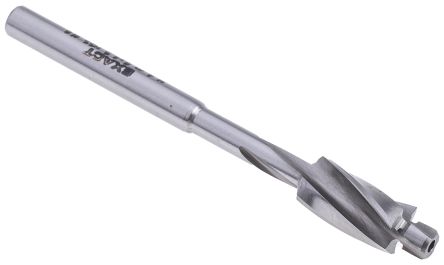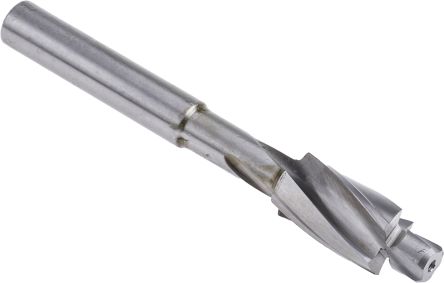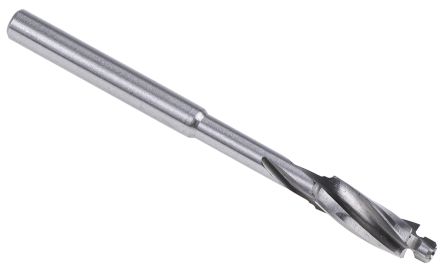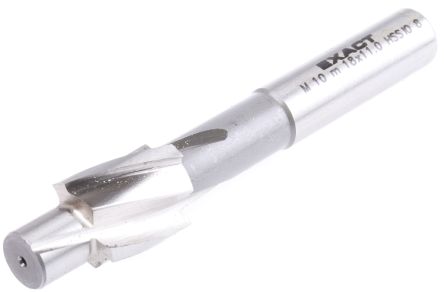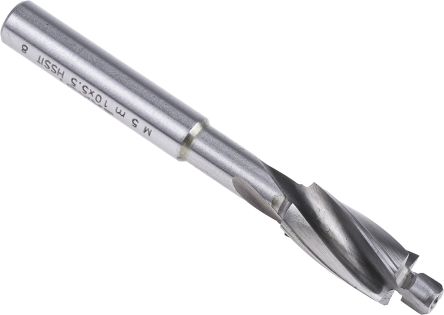- Automation & Control Gear
- Cables & Wires
- Enclosures & Server Racks
- Fuses & Circuit Breakers
- HVAC, Fans & Thermal Management
- Lighting
- Relays & Signal Conditioning
- Switches
- Batteries & Chargers
- Connectors
- Displays & Optoelectronics
- ESD Control, Cleanroom & PCB Prototyping
- Passive Components
- Power Supplies & Transformers
- Raspberry Pi, Arduino, ROCK, STEM Education & Development Tools
- Semiconductors
Exact Counterbores
If you're looking for counterbores, you've come to the right place. RS stocks many counterbores drill bit sets for your toolbox or workshop. Counterbores are short cylindrical cutters used to enlarge a hole made by another tool, thus forming a counterbore. Counterbores can often be identified by a blunt point or lip, which is the diameter of the hole it's intended to form.
What Is A Counterbore?
A counterbore is a small hole, usually circular or square, that is drilled into a workpiece. The purpose of a counterbore drill is to allow for the insertion of another fastener into the hole, such as a screw or bolt. Counterbores are used frequently in woodworking and machining applications but can also be used in other industries.
Most commonly, counterbores are used to create a flat surface on top of a hole, which is then filled with some type of fastener. A common application would be to install a bolt head in an existing threaded hole. The diameter of the counterbore will determine how deep it goes into the material being drilled out.
Counterboring is also used when installing threaded inserts into materials such as ceramic or plastic. In this case, the insert itself has threads that connect with other threads within the material being drilled out. These inserts are made from metal and allow screws or bolts to be installed without drilling holes though this may not always be necessary.
How To Counterbore A Hole
When you're trying to counterbore a hole in metal, you'll need to know how much material will be removed when you make the cut. If your part has a lot of material inside it, it's better to leave some behind than to remove too much at once. You can check your workpiece by holding it up against a straight edge and looking at where it meets the edge - if there's not enough space between the two pieces for them to fit together, then you'll want to leave more material in place.
Once you've determined how much material needs to be removed from your part before counterboring, assemble your equipment and start drilling as normal. However, use an offset tool or countersink instead of an ordinary drill bit when boring through metal. These tools are designed specifically for boring into metal without damaging the surface underneath.
Features of a Counterbore
A counterbore is typically made from a single piece of steel and has three basic features:
- Able to be used with conventional power tools: Counterbores are available in different sizes and can be used with hand-held drills or more powerful power tools such as lathes and milling machines.
- No protruding fixings: The countersinking part of this bit extends below the surface, meaning there are no protruding fixings or screws visible when installed into place, making them ideal for applications where appearance is important such as furniture or kitchen fittings.
- Increase the aesthetic appeal of the finished product: Counterbores can be used to create holes in countertops with perfectly round edges. This helps to make them look more attractive.
7 Products showing for Exact Counterbores
Popular Searches
Related links
- Drill Bit Sets - A Complete Guide
- RS PRO Counterbore M10 1 Piece
- Drill Bit Sets
- FEIN Core Drill Bit Set, HSS Bits
- Bosch 10-Piece Twist Drill Bit Set for Metal 1mm Min, HSS-Co Bits
- Bosch 50-Piece Masonry Drill Bit Wood Drill Bit Set for...
- RS PRO 8 Piece Wood Twist Drill Bit Set, 6mm to 20mm
- RS PRO 13 Piece Metal Twist Drill Bit Set, 1mm to 6.5mm
